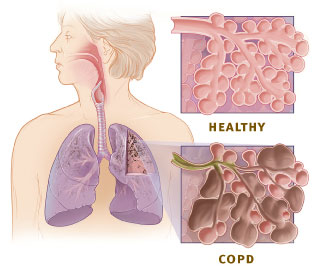Generally, diabetics are advised not to take sweets and sweet fruits; so also mango. But, a new research by Edralin Lucas, an associate professor of nutritional sciences at Oklahoma State University concludes that mango may actually lower the blood sugar and improve body composition in obese individuals; body mass index of 30 or more.
Mango is a good source of vitamin A in form of Beta-Carotene, as other red or orange colored fruits like papaya contains. It also contains “E” and “C” vitamins; the later found more in unripe ones.
It contains many minerals like potassium that is good for heart and selenium that is good as an antioxidant. Mango is high in polyphenolic antioxidants and soluble fiber.
Being high in iron, mango is said to be very good for pregnant women as well as for people suffering from anaemia. Mango is believed to be effective in relieving clogged pores of the skin and help to relieve acne.
One serving of fruit should contain 15 grams of carbohydrates. The size of the serving depends on the carbohydrate content of the fruit. The advantage of eating a low-carbohydrate fruit is that one can consume a larger portion. But, whether one eats a low-carb or high-carb fruit, as long as the serving size contains 15 grams of carbohydrates, the effect on your blood sugar is the same.
The following fruit servings contain about 15 grams of carbohydrates:
Research has shown that several other plants -- soy, green tea and grape seed -- and their polyphenolic compounds have a positive effect on adipose tissue.
Not only mango fruit but also it’s leaf may have a beneficial effect on diabetes and obesity. Before going to bed some 10 or 15 mango leaves can be put in warm water in a container and lid is closed. The next day morning this water can be filtered and taken empty stomach.
| English: Example of Mangoes, shoot in Taipei, Taiwan. Two different species. The right side one being the Gold Mango. (Photo credit: Wikipedia) |
Mango is a good source of vitamin A in form of Beta-Carotene, as other red or orange colored fruits like papaya contains. It also contains “E” and “C” vitamins; the later found more in unripe ones.
It contains many minerals like potassium that is good for heart and selenium that is good as an antioxidant. Mango is high in polyphenolic antioxidants and soluble fiber.
Being high in iron, mango is said to be very good for pregnant women as well as for people suffering from anaemia. Mango is believed to be effective in relieving clogged pores of the skin and help to relieve acne.
One serving of fruit should contain 15 grams of carbohydrates. The size of the serving depends on the carbohydrate content of the fruit. The advantage of eating a low-carbohydrate fruit is that one can consume a larger portion. But, whether one eats a low-carb or high-carb fruit, as long as the serving size contains 15 grams of carbohydrates, the effect on your blood sugar is the same.
The following fruit servings contain about 15 grams of carbohydrates:
- 1/2 medium banana
- 1/2 cup (83 grams) cubed mango
- 1 1/4 cup (190 grams) cubed watermelon
- 1 1/4 cup (180 grams) whole strawberries
- 1/3 cup (80 grams) sapodilla (chikoo)
- 3/4 cup (124 grams) cubed pineapple
Research has shown that several other plants -- soy, green tea and grape seed -- and their polyphenolic compounds have a positive effect on adipose tissue.
Not only mango fruit but also it’s leaf may have a beneficial effect on diabetes and obesity. Before going to bed some 10 or 15 mango leaves can be put in warm water in a container and lid is closed. The next day morning this water can be filtered and taken empty stomach.
...
Click here to Subscribe news feed from "Clinicianonnet; so that you do not miss out anything that can be valuable to you !!
...






